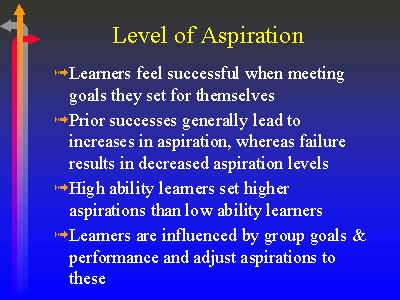The level of aspiration is a key factor in the performance determinant concept and refers to the scope and intensity of an employee’s conscious and unconscious expectations regarding their own performance. It plays a crucial role alongside explicit goals, influencing both motivation and behavior in the workplace.
When these personal expectations are met, employees typically experience satisfaction. Conversely, unmet expectations often lead to dissatisfaction. Thus, the level of aspiration becomes most evident through an individual’s self-evaluation of:
-
Their achieved results
-
Their observed performance behavior
-
The rewards received or perceived in return
This level is not fixed; rather, it is shaped dynamically by:
-
Past performance experiences
-
Socialization processes
-
External observations and comparisons (e.g., feedback, peer performance)
Importantly, the level of aspiration tends to rise after success and decline after failure—unless this natural adjustment is disrupted by cognitive biases, such as selective perception or distorted attribution of outcomes.
Understanding an employee’s level of aspiration can help organizations tailor performance feedback, reward structures, and development opportunities in a way that fosters motivation and engagement.
« Back to Glossary Index





![15 Employee Offboarding Templates That Save Hours of HR Time [Free Downloads] 15 Employee Offboarding Templates That Save Hours of HR Time [Free Downloads]](https://i1.wp.com/www.hrcloud.com/hubfs/Header.png?w=150&resize=150,100&ssl=1)
